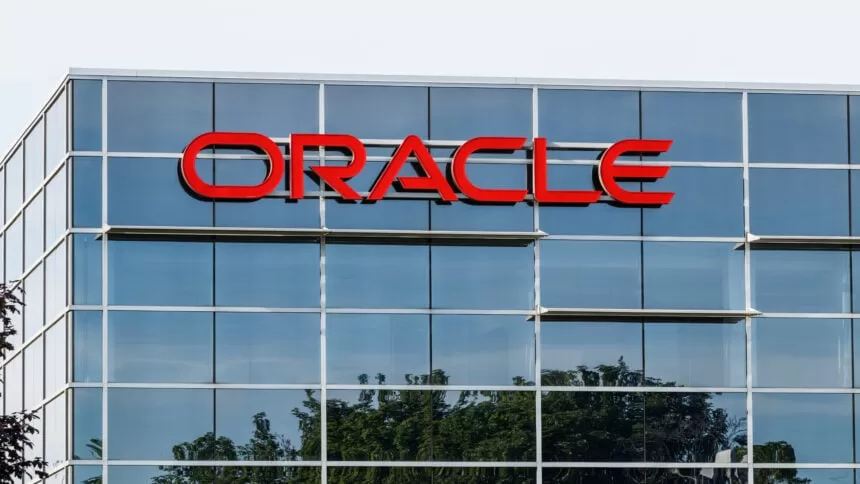OpenAI and Oracle Agreement: Oracle has taken the market by surprise after announcing a series of multi-million-dollar deals that have sent its stock soaring. Among the most notable deals is a monumental one with OpenAI, where the artificial intelligence company has agreed to acquire $300 billion in computing power over five years, beginning its acquisition in 2027.
If the reports are accurate, this contract could be among the most significant in the history of cloud computing. Although Oracle has remained silent on these claims, OpenAI has not responded to requests for confirmation.
OpenAI and Oracle Agreement
The collaboration between the two companies is not new; OpenAI began using Oracle computing services in 2024, a strategic move that marked a shift away from exclusive reliance on Microsoft Azure. This change coincides with OpenAI’s participation in the Stargate project, where, together with SoftBank and Oracle, they have committed a $500 billion investment in national data center initiatives over the next four years.
OpenAI’s need to increase its computing power is increasingly evident. In a competitive environment, the firm has also signed a significant agreement with Google, despite the two entities fiercely competing for supremacy in artificial intelligence.
The information is clearly reflected, showing how relationships in the technology sector are evolving at a time of ever-increasing demand for computing resources. The collaboration between these technology giants not only underscores the importance of data centers but also raises questions about the future of computing supply in the age of artificial intelligence.
According to the Wall Street Journal, OpenAI and Oracle have signed a historic five-year, $300 billion contract to purchase computing power. The deal, which will take effect in 2027, is part of Project Stargate , a joint initiative by Oracle, SoftBank, and the Trump administration to build data centers with a total of 4.5 gigawatts of power. Financial details were not disclosed when the deal was initially announced in July, but it is now known to be one of the largest deals ever signed in cloud computing. OpenAI, which is expected to generate $12.7 billion in revenue in 2025, is also investing heavily in hardware, with an estimated $10 billion contract with Broadcom to design its own artificial intelligence chip.
For Oracle, this collaboration dramatically confirms the rise of its cloud business. CEO Safra Catz revealed that three companies had already signed four multi-billion contracts in the first quarter, contributing to a 77% increase in cloud infrastructure revenue. In total, Oracle claims to have garnered $317 billion in future contract revenue during the period. It’s easy to understand why Larry Ellison, Oracle’s legendary co-founder, became a the richest man in the world (thanks to his Oracle stock portfolio), even outperforming Elon Musk.
The amount is colossal, worthy of Sam Altman’s outsized ambitions in generative artificial intelligence. According to the Wall Street Journal , OpenAI has just signed a record contract to train and run its AI models on Oracle’s cloud platform. Its value: $300 billion over five years. This historic commitment seals an alliance forged over the past year between the two companies.
It appears to revolve around the construction, announced in July, of new data centers capable of supplying 4.5 gigawatts of power—the equivalent of the consumption of a city of four million inhabitants. The contract could also replace, at least in part, the Stargate project, unveiled with great fanfare in January with a budget of $500 billion, but which has since stalled due to lack of funding.
Distance from Microsoft – By joining forces with Oracle, the ChatGPT designer is accelerating its distancing from Microsoft. Since 2019, it has relied solely on Azure, the Redmond giant’s cloud platform, under a clause negotiated when the latter injected several billion dollars into the startup. Last year, amid tensions between the two partners , Sam Altman denounced a lack of computing power, hampering the development of new models.
He ultimately obtained the lifting of this exclusivity. In the process, OpenAI has moved closer to Oracle, with which it is already building a data center in Texas – which, contrary to the company’s claims, is not part of the Stargate project, in which Japan’s Softbank is also involved. It has also signed a much smaller contract with Google.
Homemade chip – Meanwhile, OpenAI has partnered with Broadcom to develop its very first accelerator dedicated to generative artificial intelligence, reports the Anglo-Saxon press. The agreement is worth ten billion dollars. Production is expected to begin next summer. The startup is thus imitating Google, Amazon, Microsoft, and Meta .
Its goal is not to replace Nvidia’s powerful graphics cards, essential for training new AI models, but to meet certain specific needs. This initiative should reduce costs and dependence on Nvidia. OpenAI and Broadcom have been collaborating on this project for about a year, according to Reuters . The flagship AI startup has recruited a team of several dozen people, including former engineers who worked on Google’s AI chips.
$115 billion – These chips could be deployed in Oracle’s data centers. The contract with OpenAI is scheduled to begin in 2027. It could be worth $30 billion in the first year, before scaling up. OpenAI doesn’t have that kind of money. While the startup has already raised tens of billions , much of that will be used to offset the steep losses it expects to incur. Even if its revenue grows—it reached an annualized $12 billion this summer—it won’t be enough. The company will almost certainly need new funding.
In an investor document obtained by The Information , OpenAI says it expects to burn through $115 billion in cash by 2019, $80 billion more than the previous estimate.






